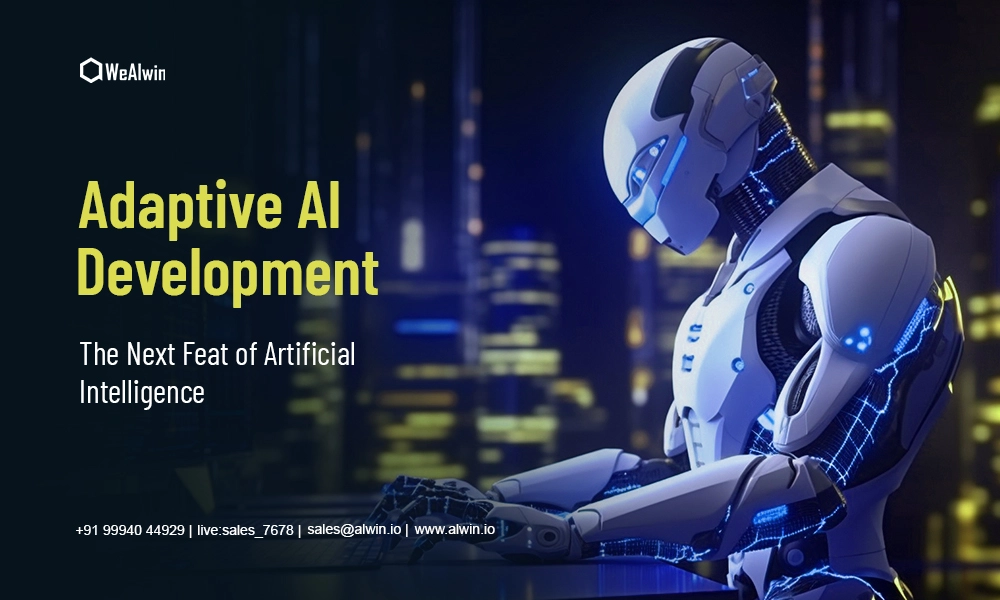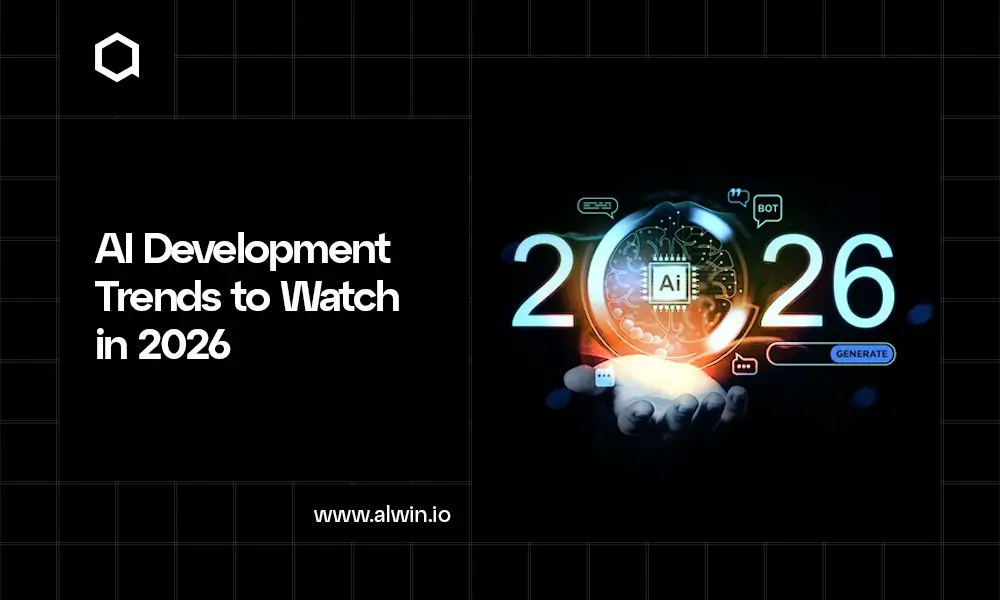The horizon of technology stretches its way longer than we ever imagined. Yes, Adaptive AI is booming, and we could anticipate the future where this technology adapts to the environment. Let’s explore Adaptive AI development and look ahead to our future with its implementation.
Adaptive AI
Adaptive AI is a new generation of artificial intelligence that can learn and adapt to changes in its environment without human intervention. This is in contrast to traditional AI systems, which are typically programmed to perform a specific task and cannot adapt to change.
Adaptive AI Development
Adaptive AI systems are able to learn from data and experience, and then use this knowledge to adjust their behavior accordingly. This makes them ideal for applications where the environment is constantly changing, such as self-driving cars, healthcare, and finance.
Adaptive AI development refers to the creation of artificial intelligence systems that can evolve and learn from their experiences. Unlike static AI, which remains fixed in its capabilities, adaptive AI continually improves its performance by analyzing new data and adapting to changing conditions.
Key Elements of Adaptive AI Development
Continuous Learning: Adaptive AI systems use machine learning algorithms to acquire knowledge over time. They can refine their models, make better predictions, and provide more accurate results as they receive more data.
Feedback Loops: These AI systems incorporate feedback loops that allow them to learn from their own errors. As they encounter mistakes or incorrect predictions, they adjust their algorithms to avoid similar issues in the future.
Flexibility: Adaptive AI can adapt to new tasks or environments without extensive reprogramming. This adaptability makes them suitable for a wide range of applications, from autonomous vehicles to healthcare diagnostics.
Real-World Applications: Adaptive AI is used in personalization algorithms, recommendation systems, and various industries where dynamic and evolving data is common.
Consult with our business experts to for a detailed discussion about Adaptive AI Development! Chat with us on WhatsApp
Why is Adaptive AI Development Important?
Adaptive AI development is important for a number of reasons. First, it allows us to build AI systems that can perform better in the real world. Traditional AI systems are often limited by the data they are trained on and the rules they are programmed with. Adaptive AI systems can overcome these limitations by learning from their experiences and adapting to new information.
Second, It enables us to build more robust AI systems. Traditional AI systems can be brittle and prone to failure when faced with unexpected situations. Adaptive AI systems are more resilient to change and can continue to operate effectively even when things don't go according to plan.
Third, it can help us to build more efficient AI systems. Traditional AI systems often require a lot of human intervention to keep them running. Adaptive AI systems can automate many of these tasks, freeing up human resources for other activities.
Here are some specific examples of the benefits of adaptive AI development:
Improved healthcare: Adaptive AI systems can be used to develop new diagnostic tools and treatments, and to provide personalized care to patients.
Enhanced financial services: Adaptive AI systems can be used to improve fraud detection, risk assessment, and investment management.
Increased manufacturing efficiency: Adaptive AI systems can be used to optimize production processes and improve quality control.
Safer transportation: Adaptive AI systems can be used to develop self-driving cars and trucks, and to improve traffic management.
Approaches to Adaptive AI Development
Adaptive AI development is a complex and challenging task, but there are a number of different approaches that can be used. Some of the most common approaches include:
Machine Learning: This forms the foundation, as adaptive AI relies on machine learning algorithms to process data and refine its performance over time.
Knowledge Engineering: It involves encoding expert knowledge into AI systems, enabling them to learn and adapt based on established rules and expertise.
Reinforcement Learning: AI agents learn through interactions with their environment, receiving feedback that aids them in enhancing decision-making capabilities.
Transfer Learning: This approach allows AI models to apply knowledge gained in one domain to new tasks, accelerating their learning process.
Online Learning: Vital for real-time adaptation to streaming data, ensuring AI remains current and responsive in dynamic settings.
Bayesian Learning: These models utilize probabilistic techniques to adapt and generate human-like text, playing a crucial role in AI's natural language capabilities.
Ensemble Learning: It combines the strengths of multiple AI models to enhance overall performance, resulting in more robust and adaptive systems.
Continuous Learning: This approach keeps AI models updated by incorporating fresh data, ensuring ongoing relevance and accuracy in rapidly changing environments.
Examples of Adaptive AI Applications
Personalized Recommendations: Adaptive AI is the driving force behind platforms like Netflix and Amazon, which offer personalized content and product recommendations. These systems continuously analyze user behavior, adapting to individual preferences and boosting user engagement.
Autonomous Vehicles: Self-driving cars rely on adaptive AI to navigate complex and dynamic environments. These vehicles continuously learn from sensor data, adapting to real-time road conditions and ensuring safe and efficient driving.
Healthcare Diagnostics: Adaptive AI is pivotal in medical diagnosis, with systems evolving as they incorporate new patient data and medical research. This enables more accurate and current assessments, improving patient care.
Fraud Detection: Financial institutions employ adaptive AI to identify fraudulent activities. These systems adapt to evolving fraud patterns by learning from historical data, detecting anomalies in real time.
Language Translation: Services like Google Translate use adaptive AI models to enhance translation accuracy. These models continually learn from diverse multilingual data, improving their ability to provide accurate translations.
Customer Support Chatbots: Many companies utilize adaptive AI chatbots for customer support. These chatbots adapt their responses based on user queries and feedback, offering personalized and efficient assistance.
Why is WeAlwin the Ideal Pick for Adaptive AI Development?
WeAlwin is the top choice for AI Development thanks to its powerful machine learning tools, real-time data integration, and support for reinforcement learning. Developers can fine-tune learning speeds and enjoy scalability, all through a user-friendly interface. In a nutshell, WeAlwin simplifies the process of creating adaptive AI systems that can quickly adapt and perform effectively in ever-changing environments, making it the go-to platform for adaptive AI development.



